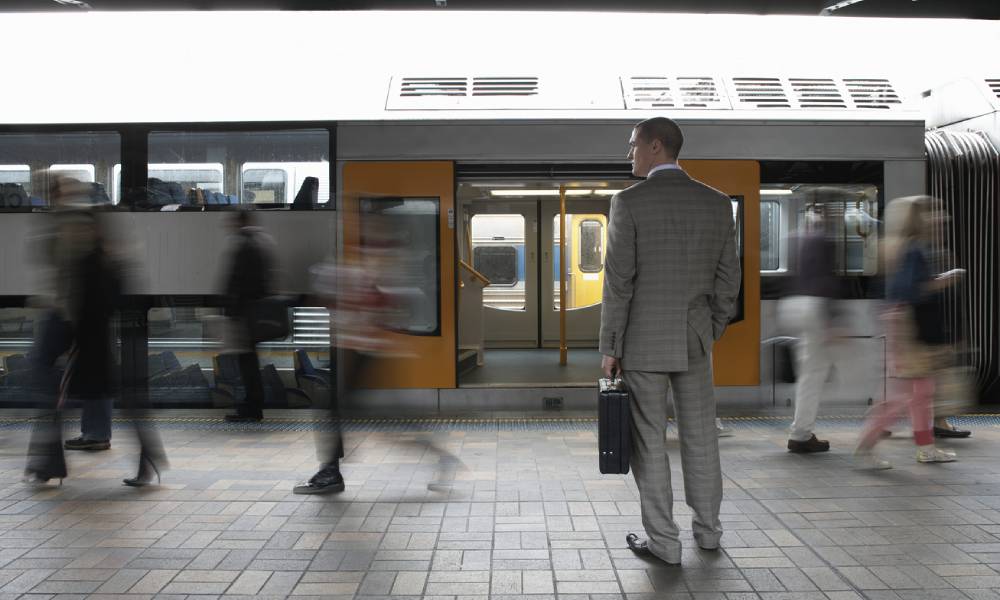
How do you manage mental health in a pandemic

Reflecting on the challenges of the pandemic, looking after employees’ mental health and wellbeing has been one of the most pressing issues facing HR leaders.
Economic uncertainty coupled with health fears and for some, the grief of losing loved ones to the pandemic, has left many employees burnt out and exhausted. Even now, almost 18 months after COVID-19 arrived in Australia, experts have warned the mental health impact of the pandemic will linger for years to come.
Speaking to HRD, Rebecca Munn, Queensland Rail’s group executive people and culture, said the strain on the mental health of the company’s 7,500 employees has changed and evolved over the course of the pandemic.
“At the beginning of all of this, it was about managing people's rational or irrational fear about what was happening. Everyone was anxious, and nervous about what was happening overseas,” she said.
“Some employers started sending people home and our workforce wanted to go home too, so trying to keep them here, and then doing a thoughtful and risk-assessed transition to home was really, really difficult. As we’ve gone through the whole pandemic and various lockdowns here and in other states, even though Queensland has had less lockdowns compared to NSW and Victoria, I think the impact on people has still been an issue.
“No-one has been untouched by COVID-19, whether it's missing weddings, funerals, births or going to visit family overseas. We also had employees whose parents died from COVID, and then there’s those who have lost income or their partners lost jobs.”
Read more: Seven tips for building resilience for employees in lockdown
The impact of the pandemic goes beyond Queensland Rail’s own employees too. Munn said in the last 18 months, their staff have witnessed a spike in domestic violence incidents at stations, passengers brandishing weapons and suicides on the rail network. As a result, Munn outlined the three-pronged approach they’ve taken to support mental health. First, it was dealing with the initial fear and anxiety, then the lack of certainty about Australia’s reopening, and thirdly, the impact on their customers.
Like many other businesses, communication from the top down was a key factor in supporting mental health, especially in the early days of the pandemic. As a largely operational business, enabling the network to be run remotely was a mammoth task – and something never attempted before.
“We had our CEO sending out communications almost every day right at the beginning,” Munn said. “Then as we went through the pandemic, we got a provider to come in and do check ins with all of our leaders about how they were coping because they were dealing with a lot of different issues.
“We also ran remote sessions on resilience and on how to cope with homeschooling, all of those sorts of topics, and we made sure that all managers were doing regular team check ins.”
Once travel resumed around Queensland, it was an opportunity to encourage staff to take time off and enjoy the beauty of their state with initiatives like train and flight packages. For organisations like Queensland Rail, that previously had taken an in-person approach to staff wellbeing, the ability to connect with staff virtually has been a silver lining of the pandemic.
Read more: Mind your hybrid workers
It's created an easier and more accessible way for staff to ask questions, and Munn said the frequency of communication is something she expects will continue long into the future. With mental health firmly cemented as a top priority and a 50/50 hybrid working arrangement in place for office-based staff, Queensland Rail has become resilient to the challenges of a pandemic. Reacting to news of a snap lockdown has become second nature.
“We’re good at it now,” Munn said. “If we find out at 10 o'clock that we're going to lockdown, it’s like no worries, here's where we’re going to do, here's the heightened risk assessments that we have implemented on our network, everyone's got to be out of the office by 4pm, don't forget your laptop!”